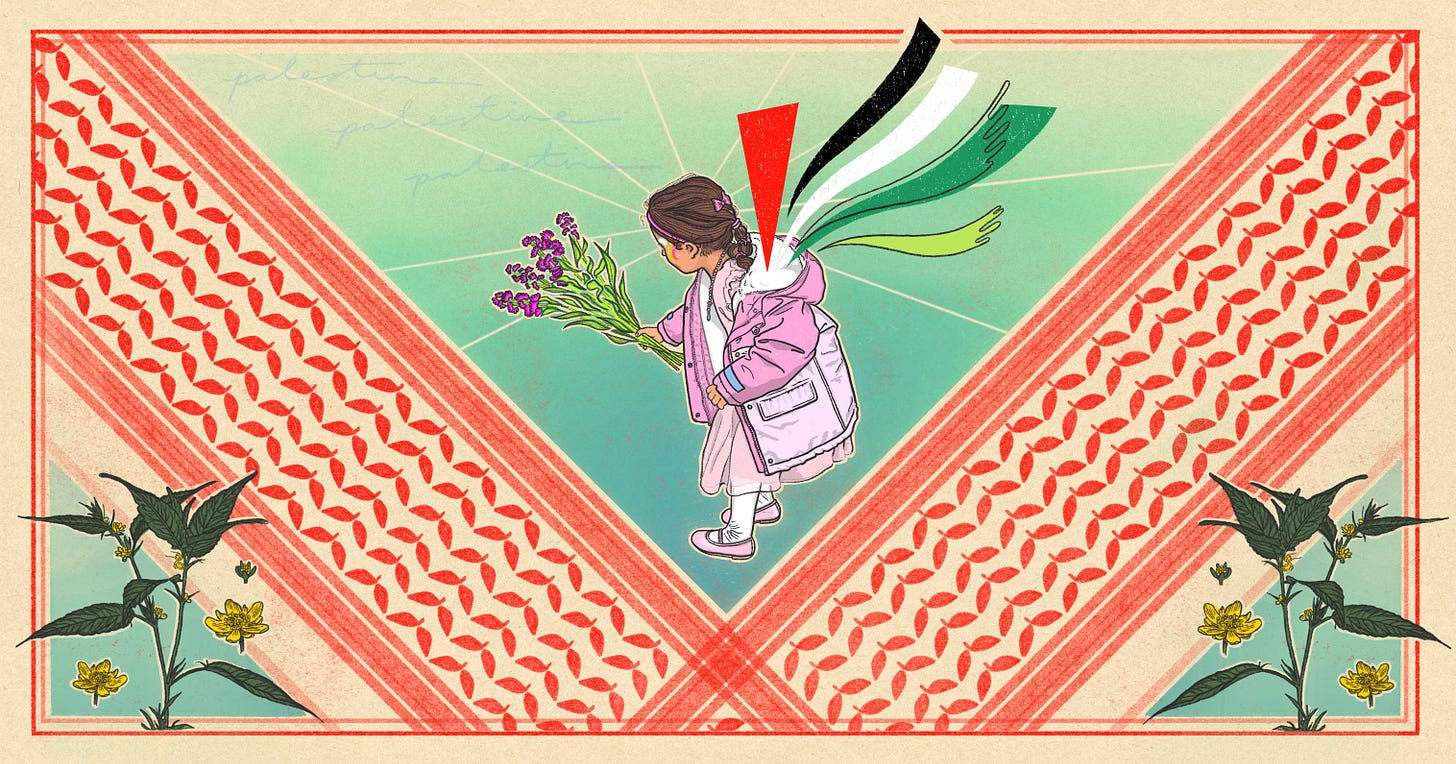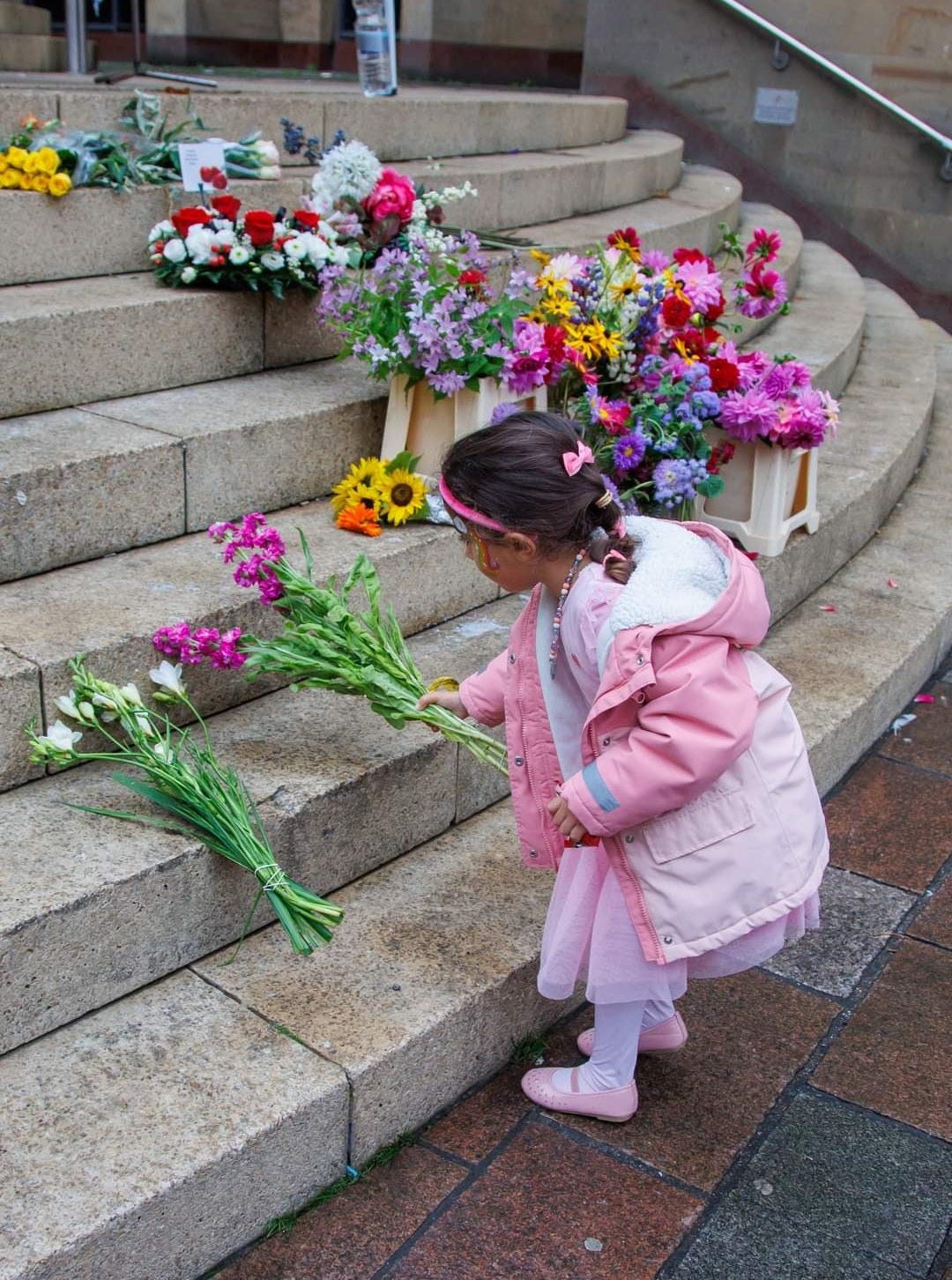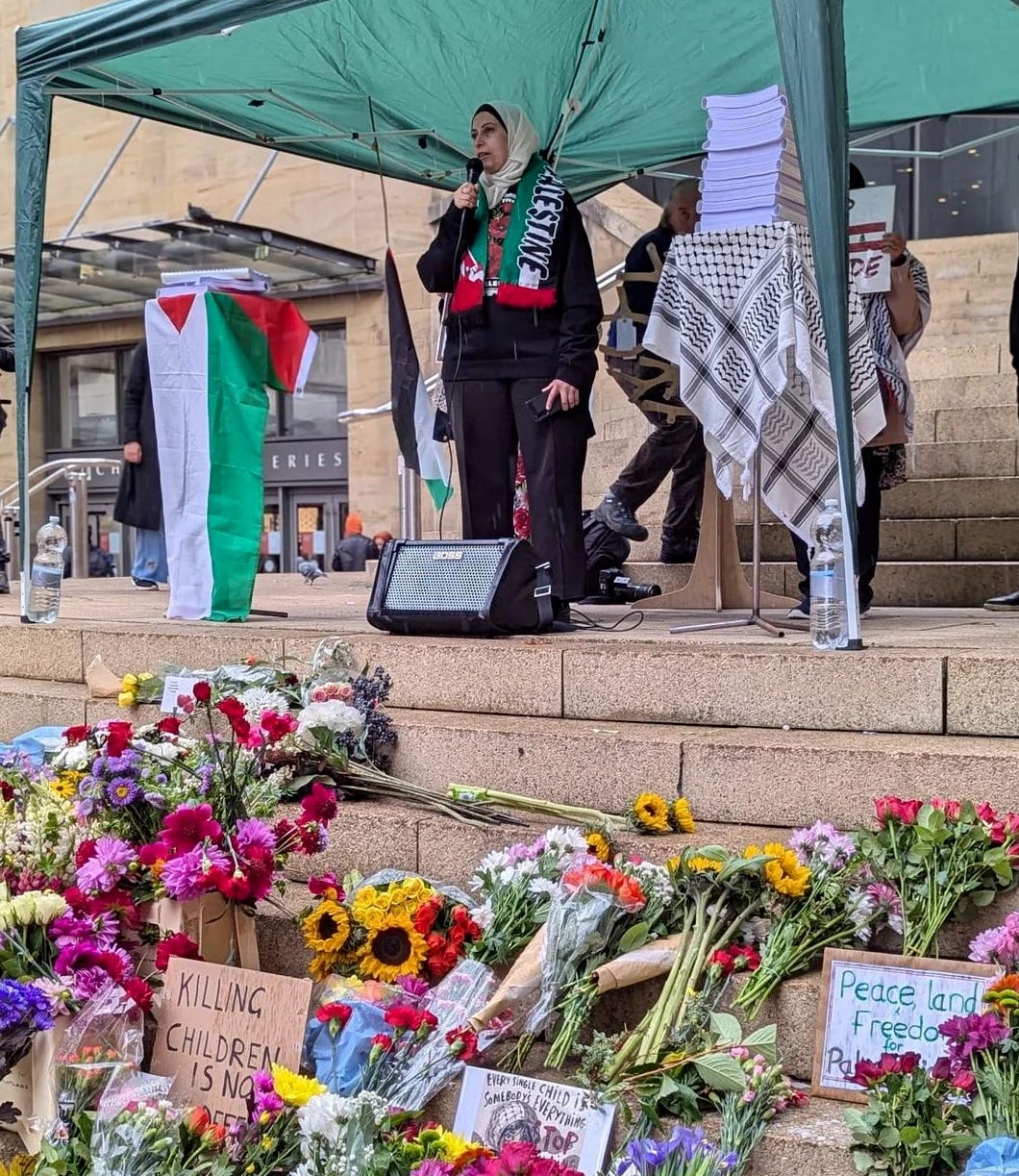It’s just been over a month since the first anniversary of the beginning of the most horrific aggression against Gaza in recent history.
This last year also marks the tenth anniversary since I lost 14 members of my immediate family in an airstrike on the building where they sheltered in Gaza.
The strike killed 39 civilians, among them my brother, his wife and his five kids, as well as my sister, her husband and her five kids. It took me years to recover from that traumatic event that forever changed the trajectory of my life and this year has been the most difficult since I first lost them.
Flashbacks from my life before 2014 have started to revisit me again, remembering the family members I’ve lost. All of our conversations, filled with laughter. All the time spent playing hide and seek together in the garden, where my dad planted trees and excitedly watched them grow and produce fruit. I remember the guava tree my nephews used to like hiding behind. I used to spot them because of the ripe fruit falling as their bodies brushed against the heavily laden branches. Then laughter would fill the place and my mum who would be sitting on the balcony would ask us to stop playing as darkness fell.
I’ve been reminiscing about my sister’s kids. Omar, the eldest, the most mature and intelligent child, only 12 years old when he was killed. He always liked to find answers for any question he faced in his studies without the support of anyone. I remember how excited he was when his dad got them a computer connected to the internet. He was a shy boy, only comfortable with his circle of friends and cousins. Unlike his brothers, Abdel Ghani and Imad, 11 and 9 years old respectively, who were both very sociable and always full of energy. Issa, their brother, 7 years old, was more similar to Omar. I remember when he fell off his bicycle and had his leg badly injured, he got stitches and was on crutches for a few weeks. Finally the youngest, Ezzeddin, only 5 years old, the most spoiled young boy. I remember him walking home with my niece Lubna from nursery every day to make sure she was safe. What a little gentleman he was.
I used to treat them all to chocolate, snacks and sweets, I used to spend Thursdays at their house, watch a movie together, enjoy the food and then they would accompany me home with their dad.
My brother’s kids were the other joy in my life. My brother and his wife were both employed and managing their time was a challenge with the five kids. Every two weeks, I used to spend Fridays at their house. I remember one of the last nights of Ramadan, my brother and his wife asked me if I could go and help them to make the traditional ‘Palestinian Ma’moul’, a kind of cookie that we share during Eid. After we finished ‘Iftaar’, we started making the cookies while watching the preparation for Eid on TV with excitement and joy. My niece Marah, who was 11 years old, was helping me and her mum. She struggled in the beginning, but after a few tries she started to make them perfectly. I remember her being so excited about joining us in the kitchen as a young lady. Eid morning used to be the time for families to come together, enjoy the morning coffee, ma’moul and all Eid sweets and chocolates. It is painful these days to celebrate anything without my brother and sister and their families. However, I keep holding on to these beautiful memories with me every year when Eid comes.
Before October 2023, I spoke to my family every day after I finished work. I would phone my mum and speak to my nieces and nephews, sometimes cooking together or even celebrating birthdays and Eid together, all on video calls. My daughter Maryam got used to this habit too. Although she is only four years old, she became very well connected to her granny and cousins through these daily calls, asking everyday to speak to them.
After October 7th, I lost contact with my family in Gaza as they got their first order to move from their house to an UNRWA school. They took shelter here with more than 7,000 other Palestinians. Six weeks later, I managed to hear briefly from them that they were alive. They asked me to keep them in my thoughts and prayers.
Shortly afterwards, the school they were sheltering in was bombed and they had to leave, this time to Rafah. They had to shelter in a tent in a remote area in the city during the coldest days and nights of December. I lost contact with them again and the fear of losing them grew every week that would pass. The anger, the stress, the overthinking controlled my body and my mind. I was occupied and trapped in a cycle of unanswered questions.
It’s taken me back to memories, sadly still too vivid, from a decade ago.
My family was sheltered in a building during the 2014 war and I was away at that time. I used to speak to them every day and they used to reassure me that they were in a safe place. The last call with them was only five hours before the building was bombed. My brother Ahmad told me that they had cooked Mulukhiyah, a meal that we usually enjoy with rice during Gaza’s hot summers. My Dad used to plant mulukhiyah in our backyard during the month of February. A few months later, we would have the most fresh and green mulukhiyah. My brother said: “We wish you were with us.” It was the last day of Ramadan. He was trying to reassure me, and added: “Don’t worry sister, all is good and we are all safe here, the children like that they are all together in this place and there are lots of things to keep them entertained.” I switched off my internet data so I could have a break from the news and went to bed feeling reassured by what my brother had said, feeling that they were protected.
That night was strange. I saw in my dream that my nieces and nephews were falling from a building. The next morning, I turned on my data so I could follow up on the news. Lots of notifications started to come in, all from colleagues and relatives. They were messages of condolences on the loss of my sister and her kids.
I couldn’t make sense of what I was reading. I phoned my brother, my brother-in-law, and my other brother, but nobody was responding. My brother’s phone was ringing from under the rubble. Finally, my other brother, Mahmous who was based in Khanyounis answered the call. I asked him if what I read was true.
“Yes,” he said, “we lost our brother-in-law, the five kids and our sister is still in intensive care.”
“What about our brother Ahmad? His kids and wife?”
“They were all together. They all are safe and getting some medical treatment now.”
People around me were crying, but I didn’t have any reaction. I had lots of questions in my head, conversations, and laughter from our last call a few hours earlier. I kept ringing my brother, and fell asleep with my phone stills in my hand. When I checked the news the next morning, I saw that the authorities and civil defense forces managed to reach the bodies of my brother and his family. I then saw a list of the names of all who were killed in the building including my brother, his wife and his kids. At that moment, I realised that none of my family who were in that building had survived.
Ten years later, the last call and the last messages from the past are triggering depression, trauma and stress. I feel that I am trapped in the past and the fear of a new loss in my life. My family are still facing a genocide. They are getting constant orders to move from one area to another every few weeks, while I am here surviving these events with only brief messages of reassurance. I have heard of the loss of many people I knew: people who I studied with, people I worked with, and relatives. No place is safe in Gaza.
In the last year, my family has started visiting me in dreams more often. While these visits reclaimed my heart, they were also scaring me, like some kind of warning that something would happen to my remaining family in Gaza.
In a few dreams, I would see my late brother being sad. The next morning I would hear about the loss of one of my extended family or a neighbour. These visits started affecting my ability to do every day tasks, my concentration and my appetite.
But, ironically, these dreams do provide some comfort; a way to relive the happy old days. I wouldn’t mind these dreams continuing in the future. I am a strong believer in life being sustained by hope. Without hope we lose our humanity. My hope is that my family will survive, and with the rest of my people, we will contribute to the rebuilding of our country. My hope is that we will raise our people from the ashes of war to a bright, peaceful future.
Doaa S. A. is a Palestinian from Gaza and moved to the UK in 2018 to pursue a Master's degree in Politics & International Studies. She now works in the migration sector, is a member of the Scottish Palestinian Society and is a volunteer with Gaza Families Reunited Campaign. She is a wife, mother and a sister with family connections in Gaza.






